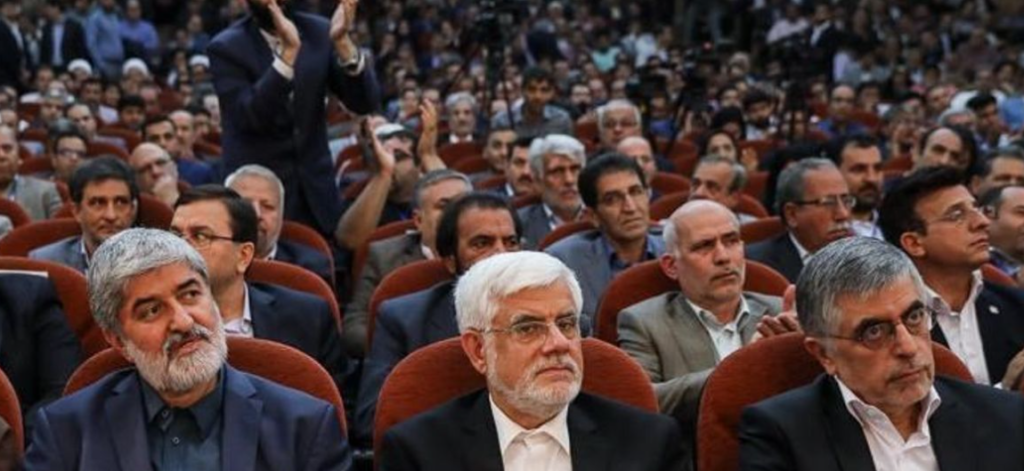July 29, 2022

The Reformist Front has written an open letter to President Raisi proposing a six-point national policy, which certainly won’t be acted on by Raisi but which sets out a mark by which the Reformists wish to be judged.
The Reformist Front is a coalition of several Reformist parties that share the same political orientation, but have never formally joined together as one organization. They were largely wiped out of public office in the last two years by the Council of Guardians, which refused to allow any prominent Reformists to run for the Majlis or Presidency. That has brought the parties closer together now.
The letter, which might be described as a Reformist manifesto, says Iran’s problems all can be traced to “incorrect international policies, oppressive sanctions and the country’s nuclear crisis.”
It then proposes its six-point program.
First, the nuclear agreement with the West must be revived in order to get out from under sanctions.
Second, the regime must end it confrontational foreign policy that picks fights with most Western countries.
Third, the country must bring itself into compliance with the banking rules of the Financial Action Task Force (FATF), which currently blacklists only Iran and North Korea. This blacklisting will keep Iran from normal access to the global financial system even if all US sanctions are lifted.
Fourth, oil exports must be returned to previous levels in order to provide the revenue to support the public. This is a point on which only a few conservatives disagree with the Reformists.
Fifth, the regime must actively seek to attract foreign investment—and, with it, foreign technology—to grow the economy.
Sixth, structural changes in the economy, which the Raisi Administration treats as its first priority, should only be taken up after the previous five policies are implemented.
